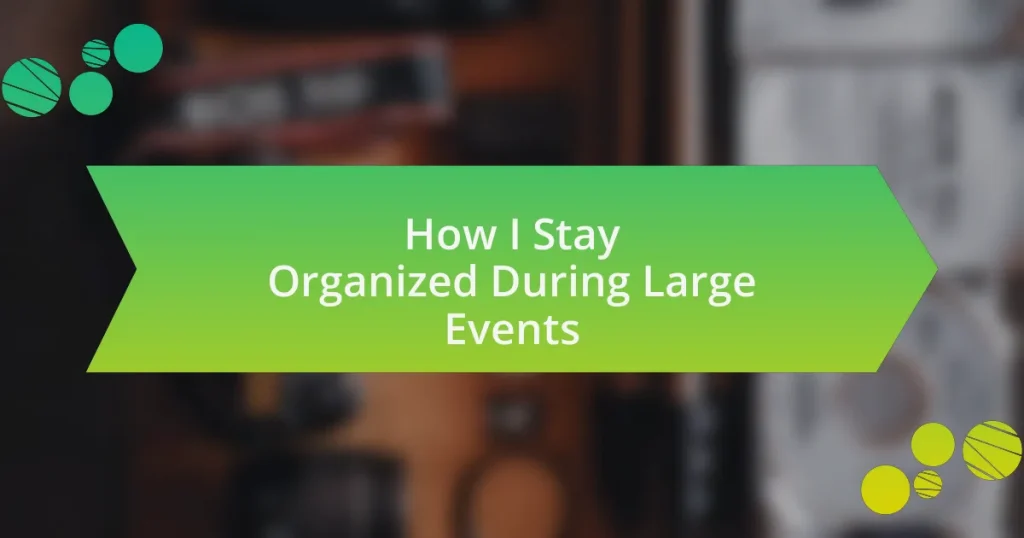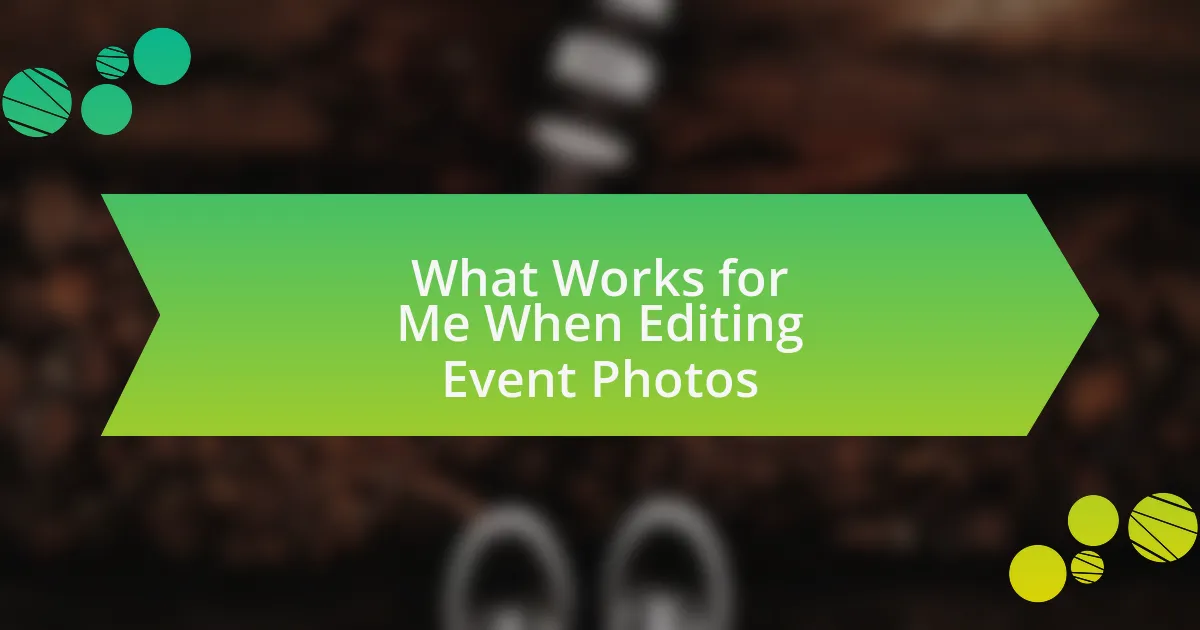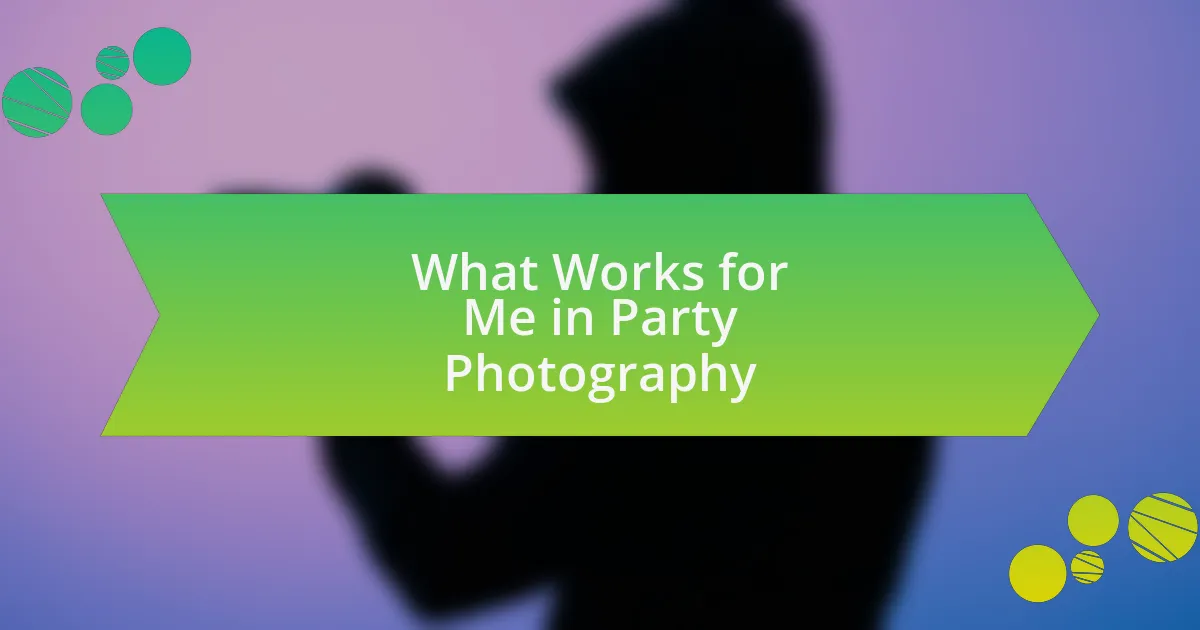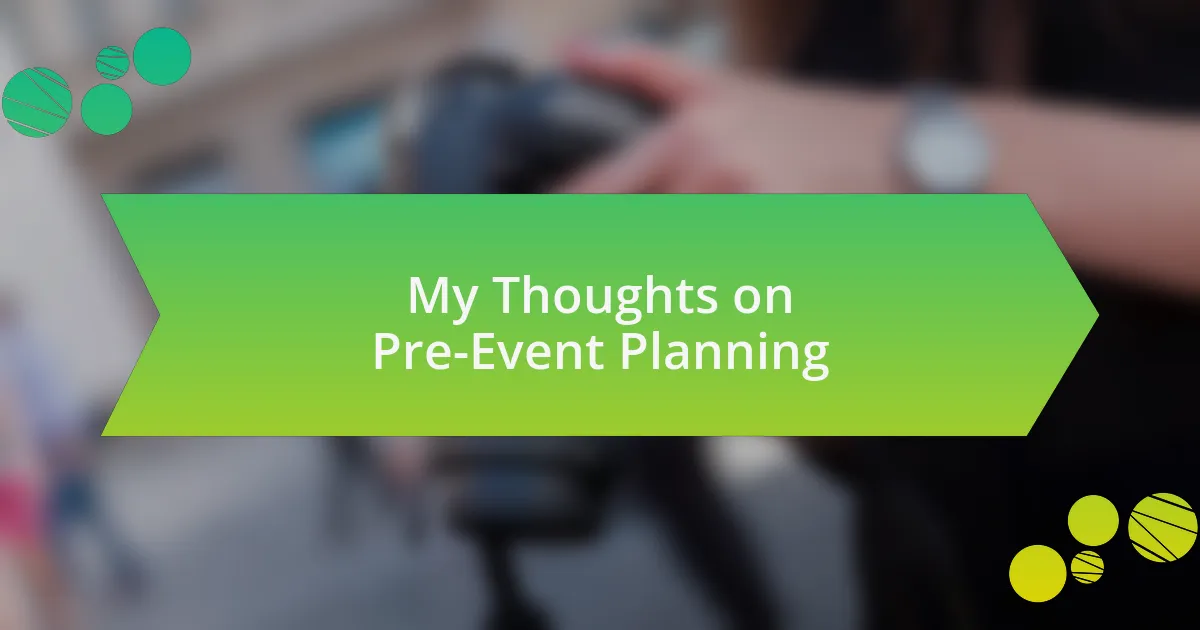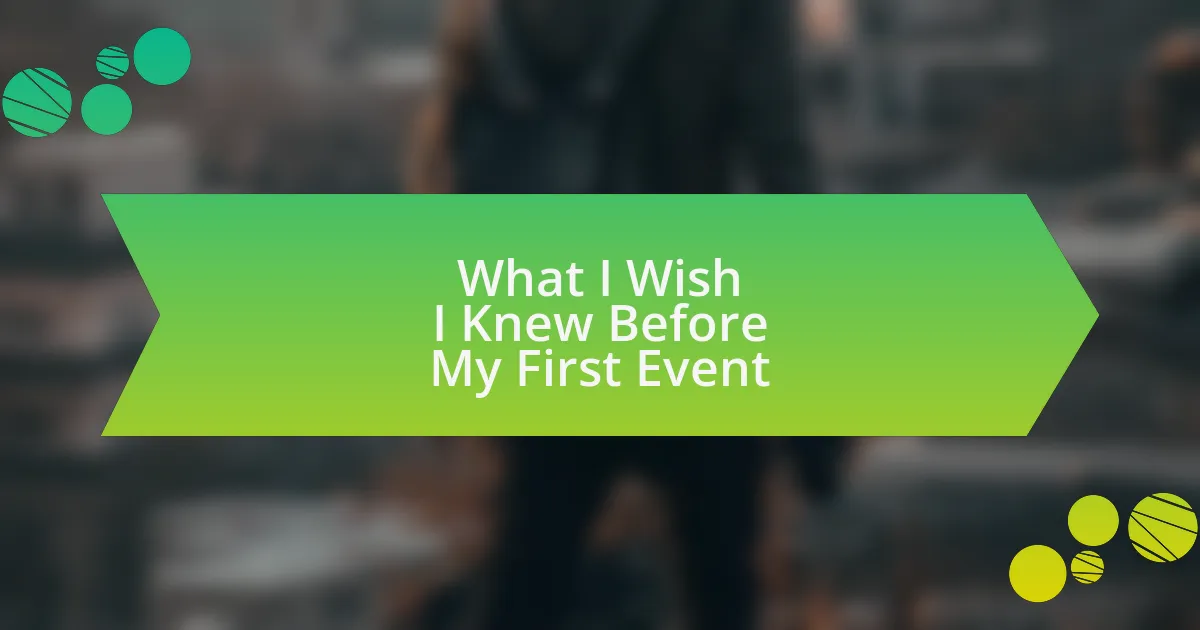Key takeaways:
- Understanding the principles of event organization, including clarity of purpose, communication, and flexibility, is crucial for successful planning and execution.
- Effective planning minimizes stress and fosters creativity, allowing for timely adaptations and smooth event execution.
- Utilizing project management tools, checklists, and communication platforms enhances organization and accountability during events.
- Capturing key moments relies on preparation, awareness of the event’s flow, and effectively managing time during photography to seize spontaneous opportunities.
Author: Marcus Harlow
Bio: Marcus Harlow is an acclaimed author and storyteller known for his captivating narratives that blend rich character development with intricate plots. With a background in literature and creative writing, he has penned several best-selling novels that explore themes of identity, resilience, and the human condition. When he’s not writing, Marcus enjoys teaching workshops on narrative techniques and mentoring aspiring authors. He resides in Portland, Oregon, where he draws inspiration from the lush surroundings and vibrant literary community.
Understanding event organization principles
Understanding event organization principles starts with clarity of purpose. When I plan a large event, I always ask myself, “What are the key goals?” This question guides my decision-making and helps prioritize everything from the venue selection to the photography style.
Communication is another vital principle. During one of my last events, I discovered that setting up a group chat with all the vendors streamlined our coordination. It was fascinating to see how quickly any hiccups could be resolved when everyone was on the same page. Have you ever experienced a breakdown in communication? Finding solutions requires proactive engagement.
Lastly, I believe flexibility is essential in event organization. I’ve had times when I had to rearrange the shooting schedule due to unexpected weather changes. Embracing that unpredictability instead of resisting it allows for creative adaptations—sometimes, the best shots come from those unscripted moments. How have you adapted under pressure in your past experiences?
Importance of planning in events
Planning is the backbone of any successful event. I remember a particular wedding where meticulous planning transformed potential chaos into a seamless experience. We created a detailed timeline, ensuring that every critical moment—from the ceremony to the reception—was accounted for, alleviating the stress for everyone involved. Isn’t it incredible how a little foresight can lead to such smooth execution?
When I think about the importance of planning, I can’t overlook how it fosters creativity. In one instance, I had an opportunity to shoot an outdoor concert. The detailed planning allowed me to secure the best vantage points, giving me the freedom to experiment with angles and lighting without fear of missing key moments. Have you noticed how preparation can unlock your creative potential in ways you never expected?
Moreover, strong planning minimizes last-minute stress. On another occasion, while covering a corporate event, our team had a carefully laid-out approach, so when unexpected technical issues arose, we swiftly implemented backup plans. The relief of knowing we were prepared not only saved the day but also let us focus on capturing the best shots. How comforting is it to have a safety net when the unexpected happens?
Key tools for event organization
When it comes to event organization, I can’t stress enough the power of project management software. For instance, during a large charity gala, I relied on a tool that allowed our team to assign tasks and set deadlines easily. It was remarkable to see everyone on the same page, which helped maintain focus and accountability. Doesn’t it feel great when technology can bring order to chaos?
I also find that having a checklist and a calendar app keeps me grounded. For a music festival I shot, I created a detailed checklist of the shots I needed and the exact times various acts were scheduled to perform. This simple yet effective approach ensured I didn’t miss anything important. Have you ever experienced that exhilarating moment of checking off tasks, knowing you’re on track?
Lastly, communication tools play an essential role in making event organization smoother. I vividly remember a conference where we used a group messaging app to facilitate real-time communication between our team members. This instant connectivity allowed us to adjust on-the-fly and quickly resolve any unexpected challenges. Have you considered how effective communication can elevate your event planning to the next level?
Strategies for capturing event moments
When capturing moments during a large event, I find that arriving early is crucial. It gives me the chance to familiarize myself with the venue and identify the best angles for shots. I recall a wedding where arriving ahead of time allowed me to catch the little details—the floral arrangements and the ambient light—that truly set the scene. Doesn’t it feel fulfilling to secure those early shots that convey the event’s mood right from the start?
Another strategy that has worked wonders for me is keeping my gear organized and accessible. For a corporate event I photographed, I had my cameras and lenses prepped and within easy reach in a well-structured bag. This way, I could switch between different lenses smoothly without missing any spontaneous moments. Have you ever had a fleeting moment slip by simply because your equipment wasn’t at hand? It’s a situation I’ve learned to avoid.
Being aware of the event’s flow is also vital. I like to observe the crowd and anticipate key interactions or emotions, like a heartfelt toast or a joyful reunion. At a birthday bash I covered, I noticed the laughter building up just before a surprise cake reveal, which allowed me to be ready for that burst of joy. Isn’t it exciting to foresee those special moments and capture genuine reactions that people will cherish forever?
Managing time during event photography
Managing time during event photography requires a sharp focus on the schedule. I remember an awards ceremony where timing was everything; I had to be ready for each recipient’s moment on stage. Staying attentive to the program allowed me to capture reactions from both the winners and their families, enriching the narrative of the day. How often do we miss the impact of these fleeting emotional moments when we lose track of time?
Another practical approach I’ve adopted is setting mini-deadlines for myself during the event. For example, during a music festival, I would allocate specific intervals for capturing the various acts. This little trick kept me energized and engaged, ensuring that I didn’t linger too long on any one performance. Ever noticed how easy it is to get lost in a vibrant atmosphere? Mini-deadlines help to snap me back to my purpose without stifling creativity.
Lastly, I always make use of my downtime wisely. If there’s a break or a less active period, I take the opportunity to review my shots and assess what I might have missed. During a local gala, I found an unexpected lull where I could sit down briefly and analyze the photos I’d taken so far. By doing this, I not only refined my approach, but I also felt more connected to the event’s unfolding story. Isn’t it fascinating how these moments of reflection can enhance our overall experience?
Personal tips for staying organized
One of the key habits I’ve cultivated is creating a detailed checklist before events. For instance, during a recent wedding shoot, I listed essential gear, backup batteries, and even snacks to keep my energy up. Checking off each item not only prepped me logistically but also eased my nerves; nothing feels worse than realizing you’ve forgotten something crucial at the last minute.
Another practice is using a mobile app for organization. I remember during a large corporate event, I needed to coordinate with multiple teams and keep track of different locations. I found a simple project management app that allowed real-time updates and notes. It was a game changer; having everything in one place helped me stay focused and avoid chaotic last-minute scrambles. Have you ever tried something similar?
Additionally, I’ve learned the value of keeping a personal journal for reflections after each event. After covering a festival last summer, I took a quiet moment to write down what went well and what didn’t. These reflections not only help me improve but also deepen my connection to my work, letting me appreciate the journey and growth. Isn’t it interesting how putting thoughts to paper can clarify our experiences?
